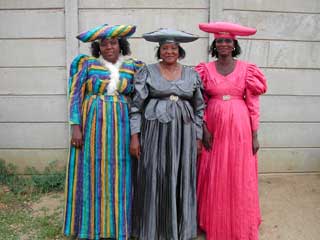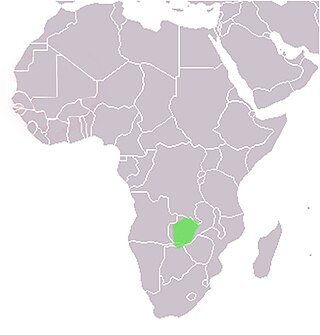Related Research Articles
An elective monarchy is a monarchy ruled by a monarch who is elected, in contrast to a hereditary monarchy in which the office is automatically passed down as a family inheritance. The manner of election, the nature of candidate qualifications, and the electors vary from case to case. Historically, it was common for elective monarchies to transform into hereditary ones over time or for hereditary ones to acquire at least occasional elective aspects.

The Songhai Empire was a state located in the western part of the Sahel during the 15th and 16th centuries. At its peak, it was one of the largest African empires in history. The state is known by its historiographical name, derived from its largest ethnic group and ruling elite, the Songhai people. Sonni Ali established Gao as the empire's capital, although a Songhai state had existed in and around Gao since the 11th century. Other important cities in the kingdom were Timbuktu and Djenné, where urban-centred trade flourished; they were conquered in 1468 and 1475, respectively. Initially, the Songhai Empire was ruled by the Sonni dynasty, but it was later replaced by the Askia dynasty (1493–1591).

Sobhuza II,, was Ngwenyama (King) of Swaziland for 82 years and 254 days, the longest verifiable reign of any monarch in recorded history.

The Herero are a Bantu ethnic group inhabiting parts of Southern Africa. There were an estimated 250,000 Herero people in Namibia in 2013. They speak Otjiherero, a Bantu language. Though the Herero primarily reside in Namibia, there are also significant populations in Botswana and Angola, and a small number in South Africa. The Hereros in Botswana and South Africa are there because of displacement during the 1904 - 1908 genocide committed by the German Empire.

Ronald Edward Frederick Kimera Muwenda Mutebi II is King of the Kingdom of Buganda. He is the 36th Kabaka of Buganda.

Prince Amedeo, 3rd Duke of Aosta was the third Duke of Aosta and a first cousin once removed of the King of Italy, Victor Emmanuel III. During World War II, he was the Italian Viceroy of Italian East Africa.

Lewanika was the Lozi Litunga (King) of Barotseland from 1878 to 1916 . A detailed, although biased, description of King 'Lubossi' can be found in the Portuguese explorer Alexandre de Serpa Pinto's 1878–1879 travel narrative Como eu atravessei a África.

King Usermaatre SetepenreShoshenq III of the 22nd Dynasty ruled for 39 years according to contemporary historical records. Two Apis Bulls were buried in the fourth and 28th years of his reign and he celebrated his Heb Sed Jubilee in his regnal year 30. He was not a son of Osorkon II but instead a grandson through his dead father prince Takelot. As he was only a grandson, his cousin Takelot II contested his succession and Egypt was divided. He married his aunt Tjesbastperu to strengthen his claim. He outlived his first five sons and was thus succeeded by his 6th son Shoshenq IV, who later died childless as well and was succeeded by Shoshenq III's 7th son Pami.

The Kingdom of Kongo was a kingdom in Central Africa. It was located in present-day northern Angola, the western portion of the Democratic Republic of the Congo, Southern of Gabon and the Republic of the Congo. At its greatest extent it reached from the Atlantic Ocean in the west to the Kwango River in the east, and from the Congo River in the north to the Kwanza River in the south. The kingdom consisted of several core provinces ruled by the Manikongo, the Portuguese version of the Kongo title Mwene Kongo, meaning "lord or ruler of the Kongo kingdom", but its sphere of influence extended to neighboring kingdoms, such as Ngoyo, Kakongo, Loango, Ndongo, and Matamba, the latter two located in what is Angola today.

Jean de Laborde was a French admiral who had a long career starting at the end of the 19th century and extending to World War II after which he was convicted of treason and sentenced to death. A pioneer of naval aviation in France, he captained the first French aircraft carrier, earned many awards, and held many top posts. He is most well known for his final military act, the scuttling of the French fleet in Toulon, after he refused to allow Germany to seize his fleet or to order his fleet to join the Allies during the German occupation of Vichy France in World War II, which left his prestige in ruins and led to his arrest and conviction for treason.
The Litunga of Barotseland is the Paramount Chief of the Barotse people. The Litunga resides near the Zambezi River and the town of Mongu, at Lealui on the floodplain in the dry season, and on higher ground at Limulunga on the edge of the floodplain in the wet season. The Litunga moves between these locations in what is known as the Kuomboka ceremony.

The Asante Empire, today commonly called the Ashanti Empire, was an Akan state that lasted from 1701 to 1901, in what is now modern-day Ghana. It expanded from the Ashanti Region to include most of Ghana and also parts of Ivory Coast and Togo. Due to the empire's military prowess, wealth, architecture, sophisticated hierarchy and culture, the Ashanti Empire has been extensively studied and has more historic records written by European, primarily British, authors than any other indigenous culture of sub-Saharan Africa.

Muteesa I Mukaabya Walugembe Kayiira was the 30th Kabaka of the Kingdom of Buganda, from 1856 until 1884.
Mulambwa Santulu was the 10th litunga (king) of Barotseland who ruled from 1780 to 1830. He is one of the most fondly remembered Luyana kings. He is famous for introducing a series of reforms such as a new constitution into the Lozi Kingdom. He has been called "Mulambwa Mutomi Wa Mulao" which translates to "Mulambwa the creator of laws."
Prince Mbanga was an African nobleman, the first Chief of Nalolo. His wife was named Notulu.
Mulena Yomuhulu Mbumu wa LitungaNgalama was a High Chief of Lozi people in Barotseland Zambia, Africa.
Mulena Yomuhulu Mbumu wa LitungaYeta II Nalute was an African High Chief, king of the Lozi people and Barotseland in Zambia.

Mulena Yomuhulu Mbumu wa LitungaYubya I was a High Chief or King of Barotseland in Zambia, Africa, one of the sacred Lozi chiefs.

Mwanawina II was a King or Chief of the Lozi people in Zambia, Africa, a member of the third dynasty of Litungas. His full title was Mulena Yomuhulu Mbumu wa Litunga.
Mwene Chitengi Chiyengele was a Mbunda king who led his people from south-eastern Angola to Barotseland in western Zambia around 1824. The Mbunda were skilled game hunters and fighters using bow and arrow. They were welcomed by King Mulambwa of the Aluyi of Barotseland, now Western Zambia.
References
- ↑ Seven Tribes of British Central Africa by Elizabeth Colson, Max Gluckman